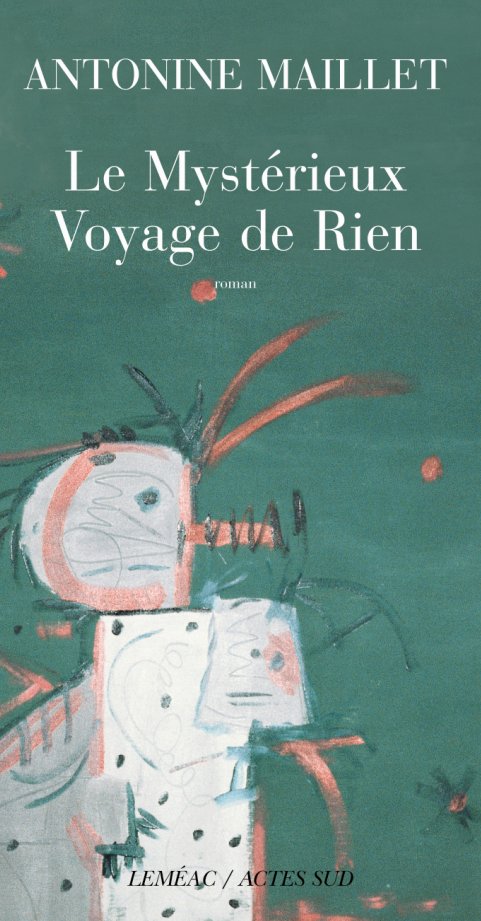Antonine Maillet
Categories: Female Authors - Francophone Authors - Novelists - Dramatists - Authors of Non-Fiction - Acadian Coast

Source: Paul Labelle
Biography
Born in Bouctouche, New Brunswick, in the heart of the Acadian region, Antonine Maillet studied in Bouctouche, Memramcook, Moncton, Montreal and Quebec City, and holds a Doctor of Letters (Université Laval, 1970).
Besides 17 plays and monologues for theatre, as well as numerous translations, she has written 20 novels, published by Leméac Éditeur.
She has received more than 15 literary awards, including the prestigious Prix Goncourt (1979) for her novel Pélagie-la-Charrette, and 30 honorary doctorates. Antonine Maillet is a Companion of the Order of Canada, a member of the Royal Society of Canada and an Officer of the Order of the Legion of Honour of France, among other honours. She has lent her name to a new school: École élémentaire Antonine Maillet. Along with her work as a writer and lecturer, she is often called upon to represent Acadians and their culture both nationally and internationally. For example, she was the master of ceremonies at the 8th Francophonie Summit, held in Moncton in 1999.
How has New Brunswick influenced your work?
With a few exceptions, all of my work is set in the Acadian part of New Brunswick, which provides both the setting for the action in my books and its primary inspiration.
What is your favourite New Brunswick book, and why?
I feel the most significant Anglophone work by a New Brunswicker is David Adams Richards’s book, For Those Who Hunt the Wounded Down. On the Francophone side, I would point out France Daigle’s novel, Pas pire. Each of these authors conveys, with undeniable talent, the sensitivity, originality and relevance of two Maritime populations that distinguish themselves brilliantly and humorously from the rest of Canada.
What do you consider to be the highlight of your career so far?
Three highlights in my life as a writer: The Prix Goncourt for my novel Pélagie-la-charrette in 1979; The publishing of my play La Sagouine and its Canadian and international tour beginning in 1972; And the development of Le Pays de la Sagouine theme park in Bouctouche.
|
Literary Prizes |
|
|---|---|
| Prix Montfort, Literature - 2003 | |
| Prix National Littéraire d’expression française du Rotary (France) - 2003 | In recognition of: Madame Perfecta |
| Pascal Poirier Award for Excellence in French-language Literary Arts, New Brunswick Arts Board - 2002 | |
| Prix Samuel de Champlain - 2001 | |
| Prix Paul Féval de Littérature populaire de la Société des Gens de Lettres de France - 1997 | In recognition of: Le chemin St-Jacques |
| Prix de la critique, catégorie Traduction, adaptation ou montage - 1992-93 | In recognition of: La nuit des rois |
| Floyd S. Chalmers Canadian Play Award - 1980 | In recognition of: La Sagouine |
| Prix Goncourt - 1979 | In recognition of: Pélagie-la-charrette |
| Prix des Quatre Jurys - 1978 | In recognition of: Les Cordes-de-Bois |
| Prix Littéraire de La Presse - 1976 | |
| Prix Québec-Paris - 1975 | In recognition of: Mariaagélas |
| Prix des Volcans - 1975 | In recognition of: Mariaagélas |
| Grand Prix littéraire de la ville de Montréal - 1974 | In recognition of: Mariaagélas |
| Governor General’s Literary Award - 1972 | In recognition of: Don l’Orignal |
| Governor General’s Literary Award - 1972 | In recognition of: Don l’Orignal |
| Prix Champlain - 1961 | In recognition of: Pointe-aux-Coques |
| Canada Council Awards (Drama) (under the pseudonym Jean Gavroche) - 1960 | In recognition of: Les Jeux d’enfants sont faits |
| Festival Committee Prize, the Dominion Drama Festival - 1958 | In recognition of: Poire-Acre |
|
Featured Publication |
||||
|---|---|---|---|---|

Le mystérieux voyage de rien (2008) |
Excerpt: Et l’attente recommence. Il en vient par milliers, de toutes sortes, mais le cœur n’y est plus. On a beau ralentir devant moi, je fais le dégoûté, me recroqueville, cherche à passer inaperçu. Et des multitudes de paires de parents filent tout droit. Peuh!... tant pis! ceux-là ne m’étaient pas destinés. Mieux vaut les limbes qu’une existence de… de quoi? Qu’est-ce que j’en sais? Je n’ai pas vécu, je ne peux pas savoir. Comment pourrais-je distinguer une vie d’une autre? Un simple possible flottant dans son néant peut-il faire à ce point le difficile? Il pourrait ne plus venir personne. Grand Dieu!... et si Lui-même m’avait oublié? L’éternité qui poursuivrait sans moi et… je ne serais jamais, jamais…? |
|||
Find this author in the New Brunswick public libraries catalogue.
Source(s):

